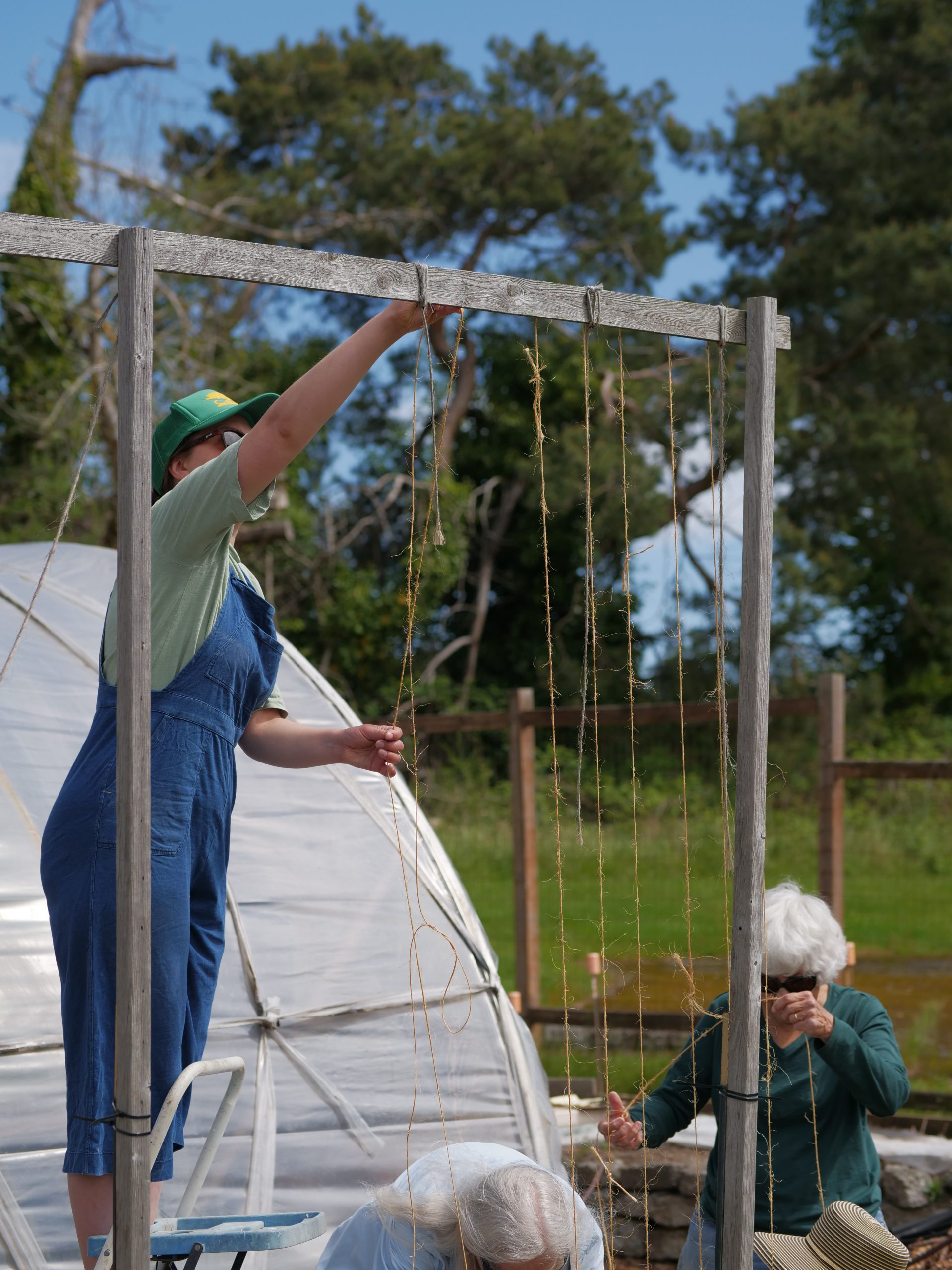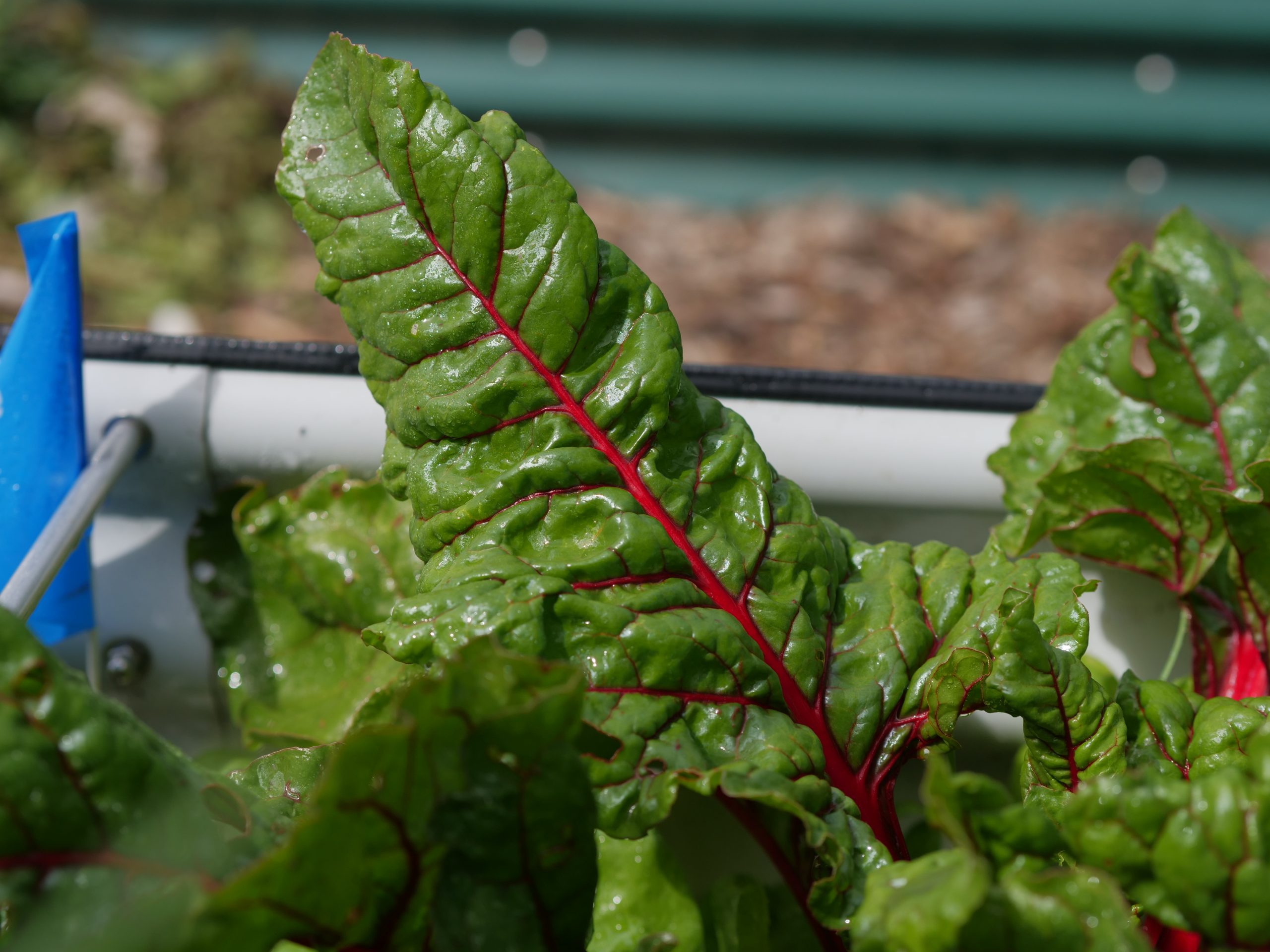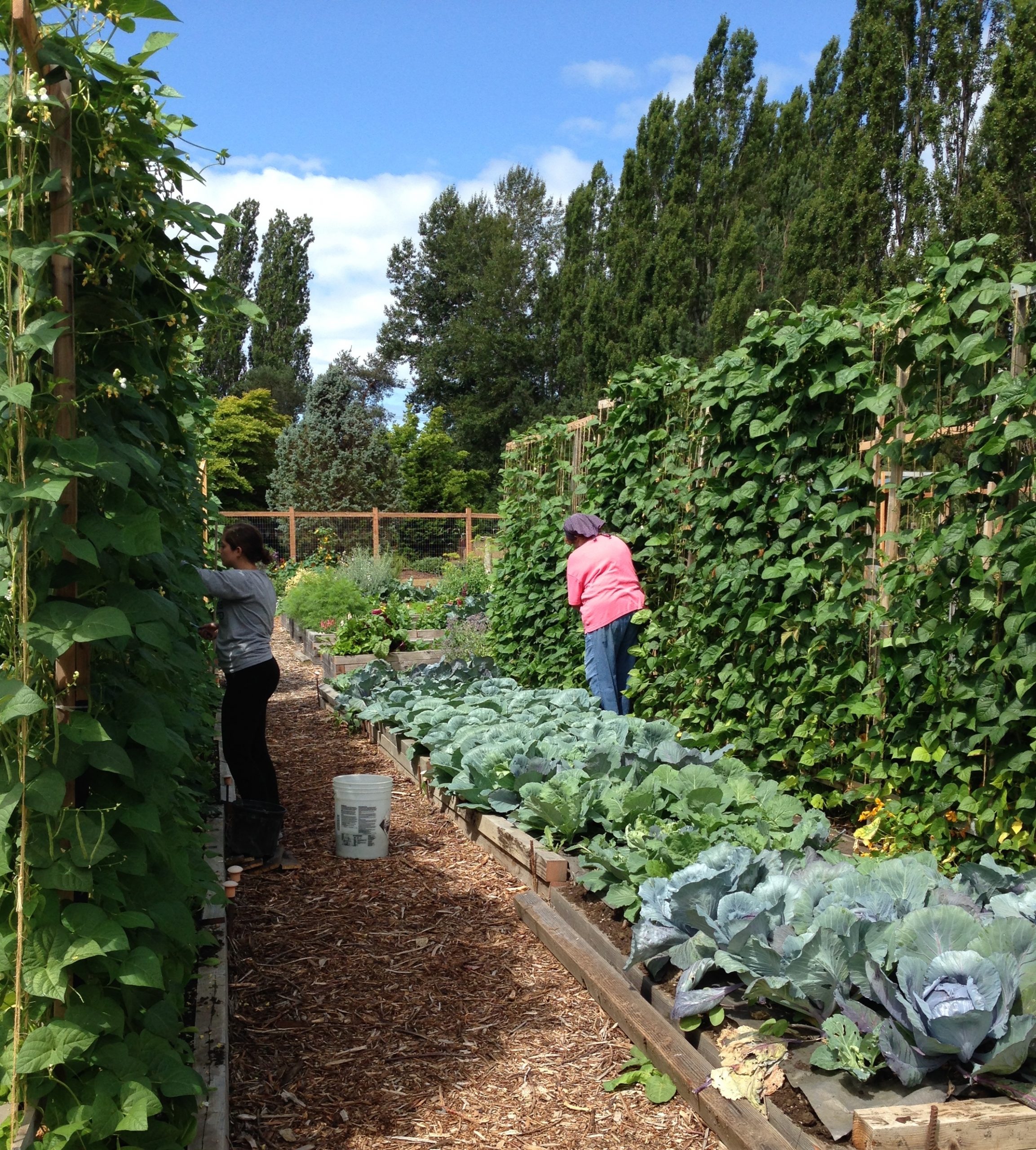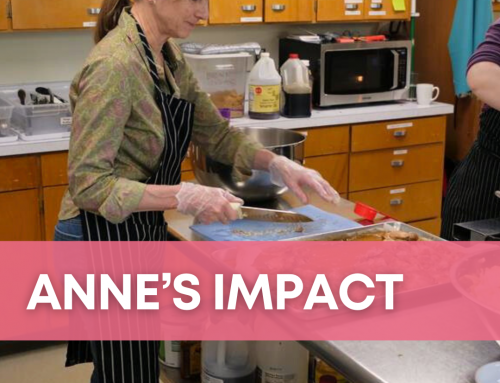At Opportunity Council’s Maple Alley Inn, a warm, welcoming meal is always ready for anyone who needs it. For decades, this beloved community kitchen in Bellingham has been a place where neighbors gather to share food, conversation, and dignity. But what many people don’t know is that much of the fresh, nutritious food served in the kitchen comes straight from a garden right outside—a garden grown with love, purpose, and a whole lot of dirt-under-the-fingernails hard work.
At the heart of this garden is a dedicated group of volunteers, led by Volunteer Garden Manager, Ed Wood. Ed is almost 83, and he has worn many hats—forester, public affairs officer, and more—but the gardening hat is one he still wears with joy.
Meet Ed Wood: Forester, Communicator, and Community Builder
Ed spent decades with the U.S. Forest Service, including time as a forest ranger in Idaho. So it was a bit of a surprise when it wasn’t the trees that brought Ed to the Northwest—it was the water. After retiring, Ed and his wife moved to Bellingham to be near saltwater and enjoy sailing in the Salish Sea. He jokes that his wife chose Bellingham over his objections, but in the end he came around. “I like to tell people it was the second-best decision she ever made,” he says with a smile.
More than a decade ago, Ed got back to his roots when he started volunteering with Opportunity Council’s Maple Alley Inn Garden. When asked to help in the kitchen at Maple Alley Inn, he offered instead to lend his gardening skills. What began as a small project grew quickly—just like the abundance of fresh produce grown under his skillful hands.

The Maple Alley Inn garden produces up to 4,000 pounds of high-quality, fresh produce each year to feed people at the community lunches.
The Humble Start: From Four Beds to Half the Garden
Originally, Maple Alley Inn rented about a fifth of the raised beds at the Faith Community Garden. Ed took responsibility for those first few plots, thinking it would be a modest contribution. But year after year, the project expanded. Today, Maple Alley Inn tends half of the entire Faith Community Garden, producing an impressive amount of food for the kitchen.
“What I thought was going to be very simple, 200 square feet, turned into a lot bigger project,” Ed recalls.
And what a project it is: the garden now produces up to 4,000 pounds of high-quality, fresh produce each year to support Maple Alley Inn’s mission of providing a free, home-cooked meal to anyone who needs one.

Plants in the Maple Alley Inn Garden start out as seeds that Volunteer Garden Manager Ed Wood grows under lights in his house.
Growing with Purpose: What the Garden Produces
The Maple Alley Inn garden grows just about everything—and it all starts from seed.
“We don’t buy any starts,” Ed explains. “Plants start out as seeds, they get planted under lights in my house, then they go out to the greenhouse, then they come up to the hoop house here, and then they go outside.”
Thanks to infrastructure improvements like drip irrigation and a hoop house (a greenhouse-like structure), the team is able to garden year-round. Cold weather crops like bok choy, spinach, and lettuce thrive in raised beds with glass covers in the winter, while garden staples like beets, tomatoes, and cucumbers grow in the warmer months.
We also grow green beans in the garden. In a good year, the garden can produce up to 800 pounds of them. “We froze 700 pounds that year,” Ed says. “The last 100 pounds were used fresh. By February 1st, all of them had been cooked and eaten.”
Feeding the Kitchen: From Garden to Plate
It’s important to us to be able to provide fruits and veggies year round. Lots of the diners at Maple Alley Inn don’t have access to fresh produce or the means to store or prepare it. The produce grown here isn’t just beautiful and fresh—it’s essential to helping our neighbors in need get nutrients that support their health.
When a harvest comes in, much of it is cleaned, prepped, and stored to use in the kitchen over time. Frozen beans become quick and easy side dishes. Fresh greens brighten up soups and salads. Root vegetables add substance to stews. Every tomato and beet makes a difference.
“It takes a lot of food to support that kitchen,” Ed says. And the garden helps make it happen, one harvest at a time.
The Power of Volunteers
All the investment in the garden since its humble beginnings have paid off—and Ed will be the first to tell you he doesn’t do it alone. Partnerships and teamwork make it possible to bring fresh produce to people’s plates every week.
“Volunteers are the heart of this garden,” he says. “I am so impressed by the folks who come time after time. Those are the people who keep it going.”
The garden hosts work parties every Monday, Wednesday, and Friday, drawing in a core group of about five or six volunteers each time. Some are retirees. Some are students. Some show up regularly; others drop in only when they can.
“We have one volunteer who only shows up at Monday work parties when it’s a national holiday,” Ed says. “She works full time, and she chooses to spend each of her holidays here.”

Volunteers are the heart of the Maple Alley Inn garden, and they're committed to making sure everyone gets the chance to eat healthy nutrients.
Ed plans out the tasks in advance and tries to match jobs to people’s strengths. Younger folks often handle heavier tasks like digging or lifting. Taller volunteers get assigned to stringing twine up high for climbing plants like beans. No experience is necessary—just a willingness to learn and get your hands dirty.
Summer can be especially tricky, as many volunteers travel or visit family, so Ed is always looking for more helping hands.
“We can always use more volunteers,” he says.
Ed’s Legacy: A Life Rooted in Service
For Ed, the garden is more than just a hobby or a retirement project.
“I feel that this garden has become my legacy,” he reflects. “I’ve gardened all my life. I’ve learned a lot—some of it three or four times—and this gives me the opportunity to pass on what I’ve learned to other people and at the same time fill a really big need in society.”
Ed runs the weekly garden parties with a jovial, friendly feel while supporting volunteers with clear directions and delegation. Jokes abound, and the volunteers chat and laugh together while coming back and forth to get his insight on challenges or gardening techniques. The spirit of teamwork can be felt, as well as plenty of humor.
“You learn pretty quickly not to take anything I say too seriously,” he says with a wink, just before turning to instruct a volunteer on the best way to prep a seed start.
His passion, dedication and skill have transformed a few garden beds into a vital source of nourishment and collaboration. And in doing so, he’s also cultivated something else: hope. These things are near and dear to our heart at Opportunity Council!
How You Can Help
Whether you’re an experienced gardener or have never touched a trowel, you can be part of this work. The Maple Alley Inn garden always welcomes new volunteers, especially during the growing season.
Can’t volunteer? Donations make a big difference, too. Every bit of support helps the garden grow and the kitchen thrive so that we can feed our community.
Another great way to get involved is through Dine Out for Maple Alley Inn, an annual community fundraiser that partners with local restaurants to support the kitchen. During Dine Out week (May 14–21), you can enjoy a meal at one of the 29 participating restaurants and contribute to feeding your neighbors in need. 100% of donations raised go directly to Maple Alley Inn, helping to purchase proteins, ingredients, and kitchen supplies that can’t be grown or donated.
To see the full list of restaurants or learn more, visit dineoutbham.com.
To get involved in volunteering, visit whatcomvolunteer.org.
More than a meal
Maple Alley Inn is more than a kitchen, and the meals Ed and our community make possible are more than just ingredients put together. They are a symbol of what a caring community can do when people work together. And behind every warm meal served is a network of seeds, soil, and people who believe everyone deserves healthy food and the chance to dine in dignity.
Thanks to Ed Wood and the garden he has nurtured with such love, thousands of meals each year are more nutritious, more sustainable, and more deeply connected to the community.
From seed to table, it all starts with care. And that’s something we can all be a part of.
P.S. If you’d like to donate to support Maple Alley Inn, visit oppco.org/donate.





